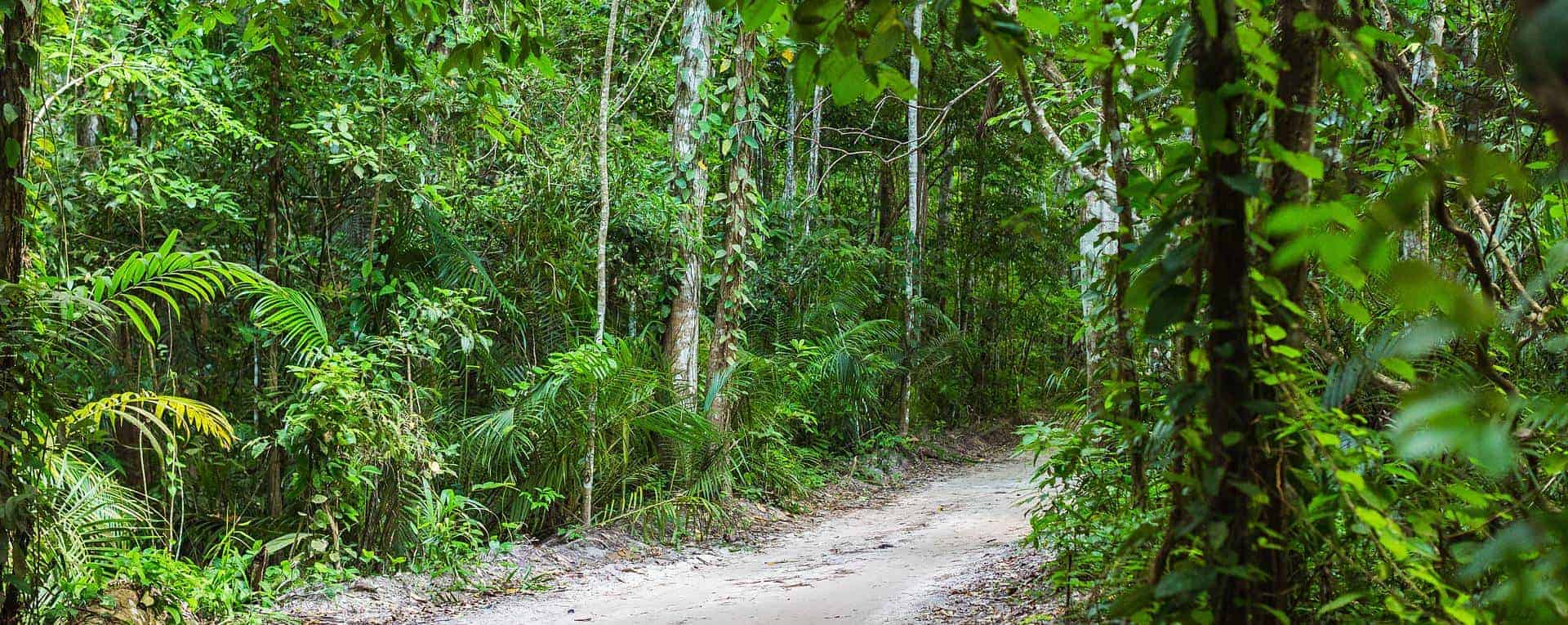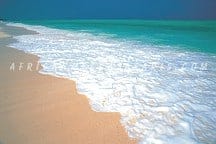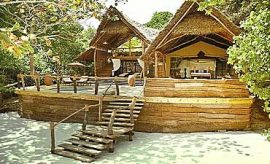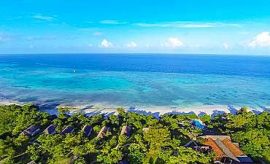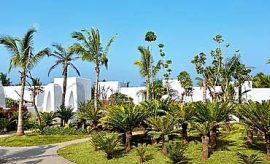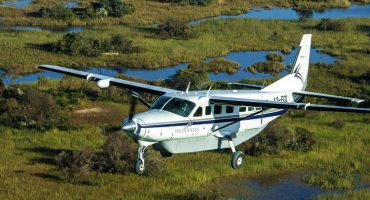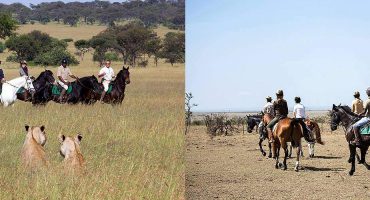NGEZI FOREST TOUR EXPERIENCE IN PEMBA WITH AFRICANMECCA
Ngezi Forest Reserve Species
Ngezi Forest comprises a unique combination of vegetation types in Eastern Africa. In Ngezi, despite its coastal location, various tree species occur which on the East African mainland are only known to be found in lowland mountain forests e.g. Quassia undulata. In addition, Southeast Asian species as well as some with Madagascan links are to be found e.g. Musa acuminata, Typhanodorun lindleyanum. Settlers have introduced some of the species while the origin of others is still a mystery. Furthermore, Ngezi has its own plant and animal species and subspecies, which don't occur anywhere else in the world. Such species are endemics. So the forest is without a doubt unique in a global sense.The Shady Forest Of Ngezi
About half of the reserve is covered by lush, moist forest with thick undergrowth. These forests grow on deep alluvial soils in the central and eastern parts of the area.Swamps, Heathlands And Thickets Of Ngezi Forest
A narrow coastal belt is covered with thick bush. The ground is ancient coral rock, broken and often sharp-edged, containing pockets of soil that sustain the vegetation. This area is known as coral rag. Mangrove forests grow on the tidal coastal creeks. Small streams feed into the creeks. During high tides, seawater runs deep up into the forest; sometimes forming brackish swampy areas. In the center of the reserve, moist forest changes abruptly into dominated heathland where the soil is leached sand. The heather, Philippia mafiensis, is only found on Pemba and Mafia Islands.Flying Fox Bats Of Pemba
One of the endemic species in Ngezi is the Pemba Flying Fox, a large bat with chestnut colored fur. Its diet consists of the fruit of figs, mango, papaya and various tree blossoms. These bats play an important role in pollination and seed dispersal of both forest and cultivated trees. During the day, Flying Foxes roost upside down in the canopies of trees, often in large groups. The Pemba Flying Fox lives only in moist forests. As there are only a few patches of forest left, and the Flying Foxes are hunted for food by the locals making them endangered.Other Mammals Of Ngezi Forest
In addition to bats, of which there are other species too, both fruit-eating and insectivorous, two species of diurnal primates also live in the canopies, the Pemba Vervet Monkey and the Zanzibar Red Colobus Monkey, which was introduced to Ngezi Forest in the 1970s from Zanzibar. Lazy-looking hyraxes are also present, and may be seen climbing on the trees eating leaves. The Pemba blue duiker, an antelope just slighly larger than a hare, hides in the undergrowth. Feral pigs introduced long ago by the Portuguese also live here. The only indigenous carnivore in Ngezi is the marsh mongoose, which normally live by ponds and streams. The Javan civet cat was probably brought to the island by Southeast Asian traders for the production of musk for perfume.Trees As Weeds For Ngezi Forest
Exploited areas were reforested with several species of trees, both indigenous and forein. One of the foreign exotic is Msisi, which originates from African mainland mountain forests. It is a very aggressive and effective colonizer suppressing the growth of indigenous species. Attempts have been made to kill Msisi by ring barking and by uprooting its young shoots. The results have been encouraging as few months later, indigenous species started to regenerate.The Giant Plant Life Of Ngezi Forest
Mjoho is the most common tree species of Ngezi's moist forest. Its canopy can be up to 35 meters above the ground. Another common species in Ngezi is Mgulele, its broad crown of which can grow up to 45 meters. It secretes white latex if cut. Mvule grows up to 50 meters and has separate male and female trees. It is one of the most sought-after timber species in East Africa.Nourishing Ponds Of Ngezi Forest
Although the soil in the forest is dry sandy, around the ponds, it is muddy due to the organic material carried by floods during the rainy season. In this swamp, forest tree species composition differs from the rest of Ngezi. One of the species found here is Mtomondo. Its bark has high tannin content and is traditionally used as a fish poison. The ponds have the own fauna of fish. These include several freshwater species e.g. freshwater eel as well as tilapia and clarias species, which both have probably been introduced to Pemba from the mainland long time ago. Brown terrapins also live in this habitat feeding on invertebrates, insects, worms, mollusks and small fish.Birds Of Ngezi Forest
Several bird species, some of which are endemic to Pemba, live in Ngezi's moist forest. Bird species living in Ngezi Forest include: hadada, African goshawk, palm-nut vulture, green pigeon, scops ow, malachite kingfisher, broad-billed roller, crowned hornbill, Pemba white-eye, black-breasted glossy starling and many others.Endemic And Endangered Biodiversity
The Mpapindi Palm is endemic to Ngezi Forest where it is well established particularly inland from Verani Beach. It is included in the international list of endangered species and occurs naturally nowhere else in the world. At Ngezi, endemic species and subspecies are found not only in plants, mammals and birds but also in butterflies. In further research of especially plants and invertebrates, more endemic species are likely to be found.Aspiring For Light
Only a small amount of light reaches the ground of the forest through its thick foliage. Climbing plants reach high up trunks of trees to absorb more light. One of the climbers is Saba Cumoriensis, a sweet-scented, white-flowered liana, which produces fruit, which are widely sold for making juice. Some shrubs also tend to climb e.g. Cossypioides Kirkii. Some ferns and orchids grow up on the trees as well.Our Guide At Ngezi Forest
The forest guide at our time of the visit was Salim Mohamed Said, who has a wealth of knowledge on the forest. Ngezi is located 22 kilometers from the town of Wete. The best way to learn about the biodiversity present in the Ngezi Forest is to undertake a nature walk with a seasoned guide assigned by AfricanMecca Safaris.Read More +
WANT TO VISIT ZANZIBAR?
An exquisite Indian Ocean jewel, off the east coast of Tanzania, Zanzibar or the Spice Island is a laid-back little settlement where history whispers and pristine beaches sooth your mind, body and soul.
Read More +
WHERE TO STAY IN PEMBA
There are two main accommodations on the island. Fundu Lagoon affords a personalized and intimate boutique experience while Manta Resort is most suited to the travelers who are more restricted on their budget.
Read More +
GUIDE ON PEMBA
Dubbed as the Green Isle or El Huthera by early Omani sailors, Pemba Island is a beautiful, verdant East African jewel set in the shimmering romantic azure of the Indian Ocean unspoiled by modern civilization.
Read More +
BEST TIME TO VISIT PEMBA
The best times to holiday on Pemba are its cool-dry seasonal months from July to October which typically sees temperate weather conditions and also the humid-hot dry seasonal months of January and February.
AFRICANMECCA REVIEWS
What are our Customers saying about us? READ MORE REVIEWS
The Fundu Lagoon Resort at Pemba was outstanding. All personnel there care and deliver great service. Beach dinner experiences and superb variations of meal menus plus changes of venue for dinners were wonderful.
Viv & Kirsty Turner - KwaZulu-Natal, South Africa
Jambo Altaf, We did enjoy the Manta Reef Lodge in Pemba. People were very friendly, food very good with lots of variety lunch & dinner. Diving was well organized, professional people and good infrastructure.
Michela Casaldi & Jason Haynes - Newbury, United Kingdom
AfricanMecca Safaris created a remarkable honeymoon tailored to our interests and desires. The quality of service and delivery of experience was unsurpassed. I highly recommend AfricanMecca Safaris to honeymooners, families, or any traveler.
Noorin & Jason Nelson - Maryland, United States
Greetings to you and our most fervent thanks for a wonderful trip of Kenya, Zanzibar, South Africa & Victoria Falls. Everything went very well. This was truly a perfect vacation. Thank you so much for all your arrangements.
Adrienne & Barrie Carter - Canada
We have returned from our African adventure and would like to thank you very much for your part in making this such a wonderful experience. We were lucky enough to time the Great Migration from the Serengeti, which was amazing.
Denise Paterson - Belmont, Australia
Ras Nungwi was a beautiful property, the pristine white beach not more than forty feet from our lovely room, the Indian Ocean sublime. Raza, it was the vacation of a lifetime, again, thanks so much.
Jamie Davis & Liudmila Kondakova - California, United States
Dear Raza, I want to thank you for being the very best travel partner to design and arrange our spectacular trip to Kenya, Tanzania and Zanzibar. I have already recommended you to several of my friends and colleagues.
Pat Bernard, Vice President, Global Channel Sales, Novell Corp - New Hampshire United States
EAST AFRICA SAFARI & BEACH BOOKING TRIP IDEA FOR PEMBA IN EASTERN TANZANIA
When beach vacationing in Pemba, we recommend experiencing some of the surrounding Pemba Island attractions and tour activities after your Northern Tanzania safari to Tarangire, Lake Manyara, Ngorongoro Crater and Serengeti.
You may optionally extend out to offbeat parks in Southern and Western Tanzania such as Nyerere (Selous), Ruaha or Katavi ending with a chimpanzee trekking safari at Gombe or Mahale by the relaxing Lake Tanganyika.
PEMBA BEACH & ISLAND TOUR PLANNING DETAILS
Kickstart Your Beach Planning
ARE YOU PLANNING TO BOOK AN AFRICAN TRIP TO PEMBA IN TANZANIA?
Do You Need Knowledgeable, Experienced & Specialist Guidance For Your Travels In Pemba ? Let Us Help Plan Your Trip Itinerary Correctly
CONTACT AN AFRICA TRAVEL EXPERT ON PEMBAHAVE YOU VISITED PEMBA ON AN AFRICA TRIP IN TANZANIA?
Write A Travel Or Tourist Trip Review To Share Your Experiences
WRITE PEMBA REVIEWAMS BLOG
VIEW ALL -- 24 December 2024 by AfricanMecca Safaris, in Blog For AfricanMecca Safaris,Safari Planning Blog Posts - AfricanMecca Safaris
What AfricanMecca Accomplished In 2024
What AfricanMecca Accomplished In 2024 Published By AfricanMecca Safaris | Blog ...READ MORE + - 26 October 2017 by AfricanMecca Safaris, in Blog For AfricanMecca Safaris,Safari Planning Blog Posts - AfricanMecca Safaris
Baggage Guidance & Restrictions On Flying Safaris In Africa
Baggage Guidance & Restrictions On Flying Safaris In Africa Published By Afr...READ MORE + - 07 June 2017 by AfricanMecca Safaris, in Blog For AfricanMecca Safaris,Latest Kenya Blog Posts From AfricanMecca Safaris,Safari Planning Blog Posts - AfricanMecca Safaris
Masai Mara Horseback Riding Safari In Kenya With AfricanMecca
Masai Mara Horseback Riding Safari In Kenya Published By AfricanMecca Safaris | ...READ MORE +

